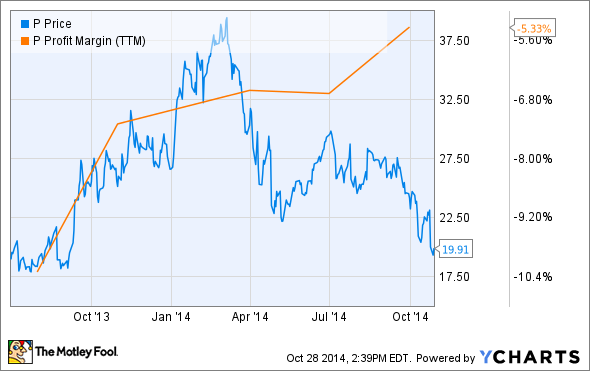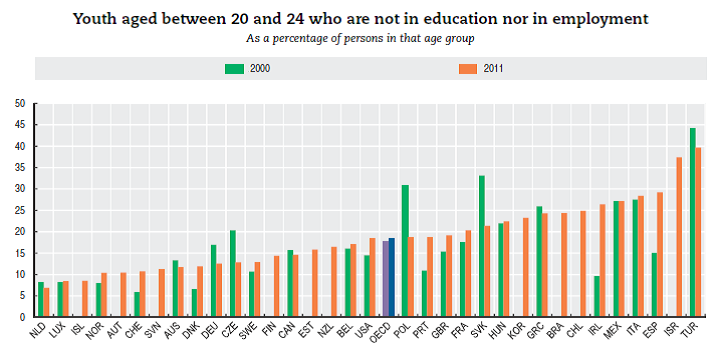Does Socially Responsible Investing Have Hidden Costs
Post on: 15 Июль, 2015 No Comment

Summary
- Socially responsible investing has become a major investment trend and will continue to grow in significance.
- Long term statistics suggest that socially responsible investing may have an adverse effect on investment returns.
- Socially responsible investment returns appear to be closely correlated to prevailing global macro economic conditions.
- More short term statistics and qualitative indicators suggest that if global macro economic conditions improve, socially responsible investing may outperform going forward.
The Millennial generation has become known as a more socially conscious generation, preoccupied with the environment, sustainability and quality of life. As these millennials enter the workforce and begin investing they will continue to support the growth of socially responsible investing. What are the implications of this new investment trend?
Instead of favoring profitability above all else, socially responsible investors choose companies on the basis of their performance across a broad range of social, environmental, governance indicators and rank at the top of their industry group. This is no small trend. There even exists a United Nations document outlining Principles for Responsible Investment now listing around 1,349 signatories. Furthermore, it has been estimated by the U.S. SIF’s 2014 Report on U.S. Sustainable, Responsible and Impact Investing Trends that socially responsible investing (SRI) portfolios have reached around $6.57 trillion at the start of 2014, a 76% increase on the number reported in 2012. These assets now account for more than one out of every six dollars under professional management in the United States. That would be 18% of the $36.8 trillion in total assets under management.
The scale of such investing begs the question of returns. How do the returns from ethical investing practices compare to non-ethical? In the 2015 Credit Suisse Global Investment Returns Yearbook there is a paper from the London Business School about the growing pressure on asset managers to demonstrate responsible investment behavior. The paper goes on to explore the trend and consider the two options available to responsible investors: to ‘exit’ (divest or not buy offending companies) or ‘voice’ (engage the offending company).

A comparison of two U.S. mutual funds — the Vice Fund, now named the USA Mutuals Barrier Fund (MUTF: VICEX ) and the Vanguard FTSE Social Index Fund (MUTF: VFTSX ) — suggests that avoiding unethical companies can be detrimental to investment returns. The Barrier Fund invests in industries such as tobacco, alcoholic beverages, gaming and defense/aerospace and the Social Index Fund tracks an index screened by social, human rights and environmental criteria. The results since 2002 are as follows:
(Source: Morningstar)
Since the Barrier Fund’s launch on August 30, 2002 the Social Index Fund has significantly underperformed it by about 1.7 percent per annum.
On the other hand, we can compare the performance of ethical funds vs. non-ethical funds more broadly. Data from Morningstar indicates that over a 10 year timeframe ethical funds returned on average 56.7% while non-ethical funds rose 128%. Nevertheless, on a more recent three-year timeframe ethical fund returns have edged slightly ahead of non-ethical funds, the former returning on average 36% and the latter 31%.
What could explain these results? First, it is important to consider the specifics of each fund. The Barrier Fund is quite concentrated with its top 10 holdings accounting for 47.3% of total assets. In addition, 52% of the fund is allocated to the consumer defensive sector, which tends to be resilient in the face of market downturns and thus could explain why the fund fell less hard during the great recession of 2008-2009.
(Source: Yahoo Finance)
On the other hand, the Vanguard FTSE Social Index Fund is less concentrated with its top 10 holdings making up only 22.17% of its total assets. In addition, the fund is essentially equally weighted between the financial services, consumer cyclical, healthcare and technology sectors, which are more sensitive to economic downturns. This sector weighting could explain the large dip the fund experienced during the great recession of 2008-2009.
(Source: Yahoo Finance)
Two possible conclusions can be made. The first is that ethical investing through exit or non-investment may negatively affect investment returns. Unethical companies perform well as they retain significant competitive advantages due to high barriers to industry entry. In addition, if the health of the global economy is uncertain, unethical asset allocations tend to outperform given their predominately consumer defensive nature. Thus, depending on prevailing economic conditions, ethical investors may be better served by using their voices to change the operating practices of the offending companies rather than steering clear altogether.
The second conclusion is that these findings could support the thesis that if the global economy picks up steam, ethical company share prices could outperform in the future as investor demand increases and demand for unethical products decreases.
Disclosure: The author is long MO. (More. ) The author wrote this article themselves, and it expresses their own opinions. The author is not receiving compensation for it. The author has no business relationship with any company whose stock is mentioned in this article.














